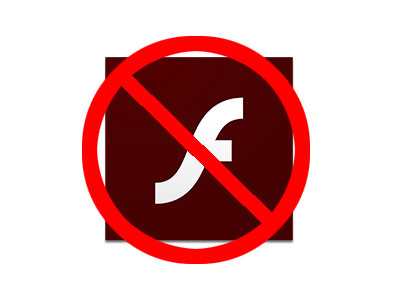Google Chrome To 'De-Emphasize' Flash Starting Next Month, Block It By Year's End
Back in May, Google said it would start blocking Flash by the end of the year. The company reiterated that today, while also adding that it will begin “de-emphasizing” Flash content in Chrome as soon as next month, when Chrome 53 arrives.
Although Flash used to be quite an important tool for developers in the early days of the web when they couldn’t do too much with HTML, things have changed significantly since then. Over the years, Flash became one of the top targets for malware makers. That happened in part because the plugin was so popular with users and worked in all browsers, but also because it had too much vulnerable code that keeps getting exploited to this day.
Beyond the security issues on the desktop, Flash also had performance and battery life issues on mobile platforms, which is one of the reasons why Steve Jobs famously promised to never adopt it for iOS. Google and Adobe tried to optimize Flash for Android, but it eventually became obvious that even with dual-core processors arriving in high-end smartphones at the time, Flash was not made to work well on mobile. Adobe eventually stopped supporting Flash on Android altogether.
The vast majority of users, whether on mobile or on the desktop, are now using a browser that supports an extensive range of HTML5 capabilities that can match Flash. Therefore, browser vendors, as well as many users, believe that it’s now time to put an end to Flash content on the web.
Starting with version 53 next month, Chrome will begin to block invisible Flash content (such as page analytics). This reportedly represents 90 percent of the Flash content on the web and slows down web pages.
Mozilla has already begun to block flash and promised to block it by default sometime in 2017. Apple will begin blocking Flash by default, too, in the next version of macOS, which should be available this fall. Google said that Chrome 55 will also block all Flash content by default by the end of this year. All websites will then show the HTML5 version by default, with the exception of Flash-only websites.
Get Tom's Hardware's best news and in-depth reviews, straight to your inbox.
Lucian Armasu is a Contributing Writer for Tom's Hardware US. He covers software news and the issues surrounding privacy and security.
